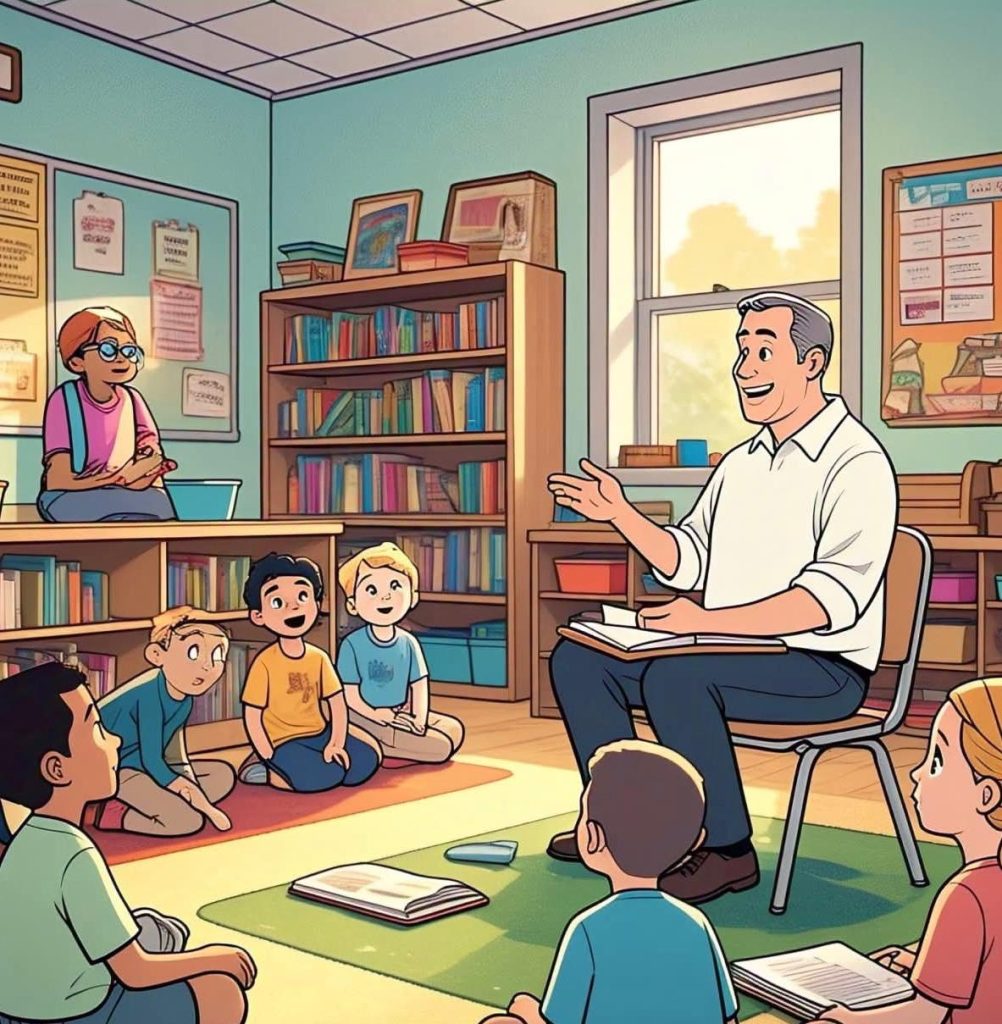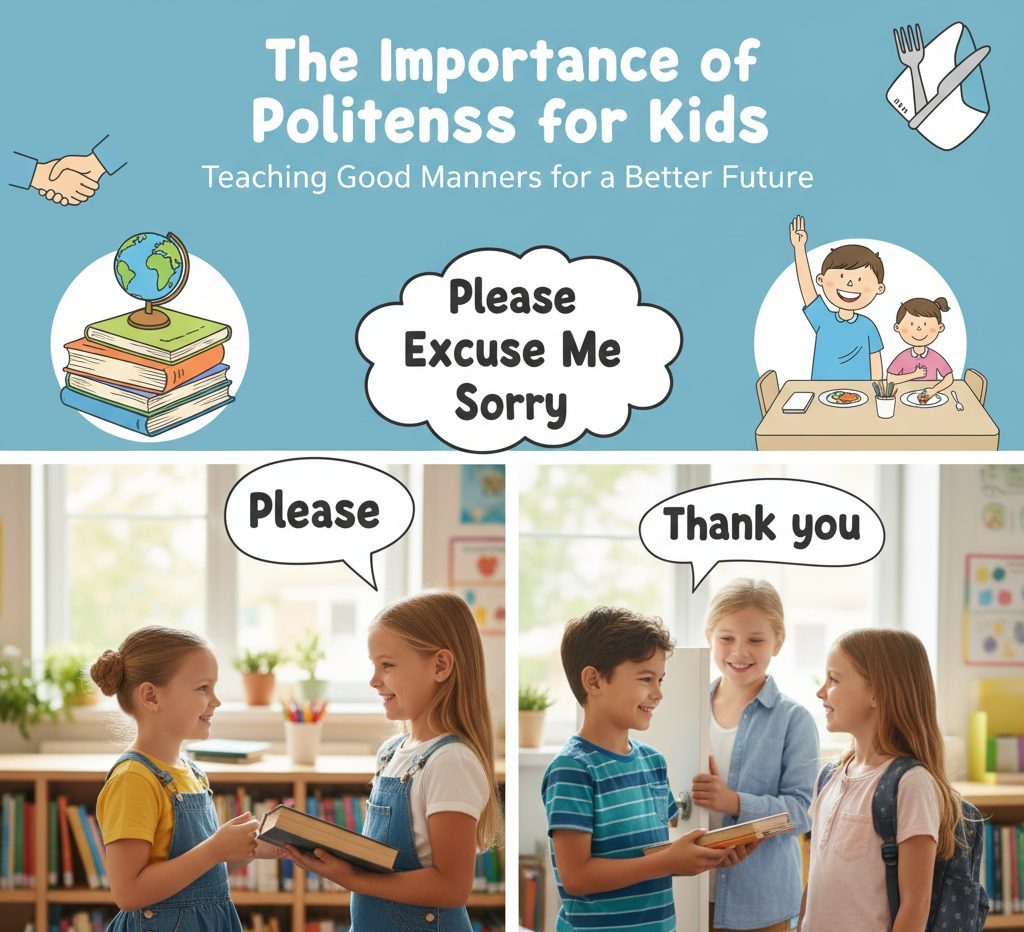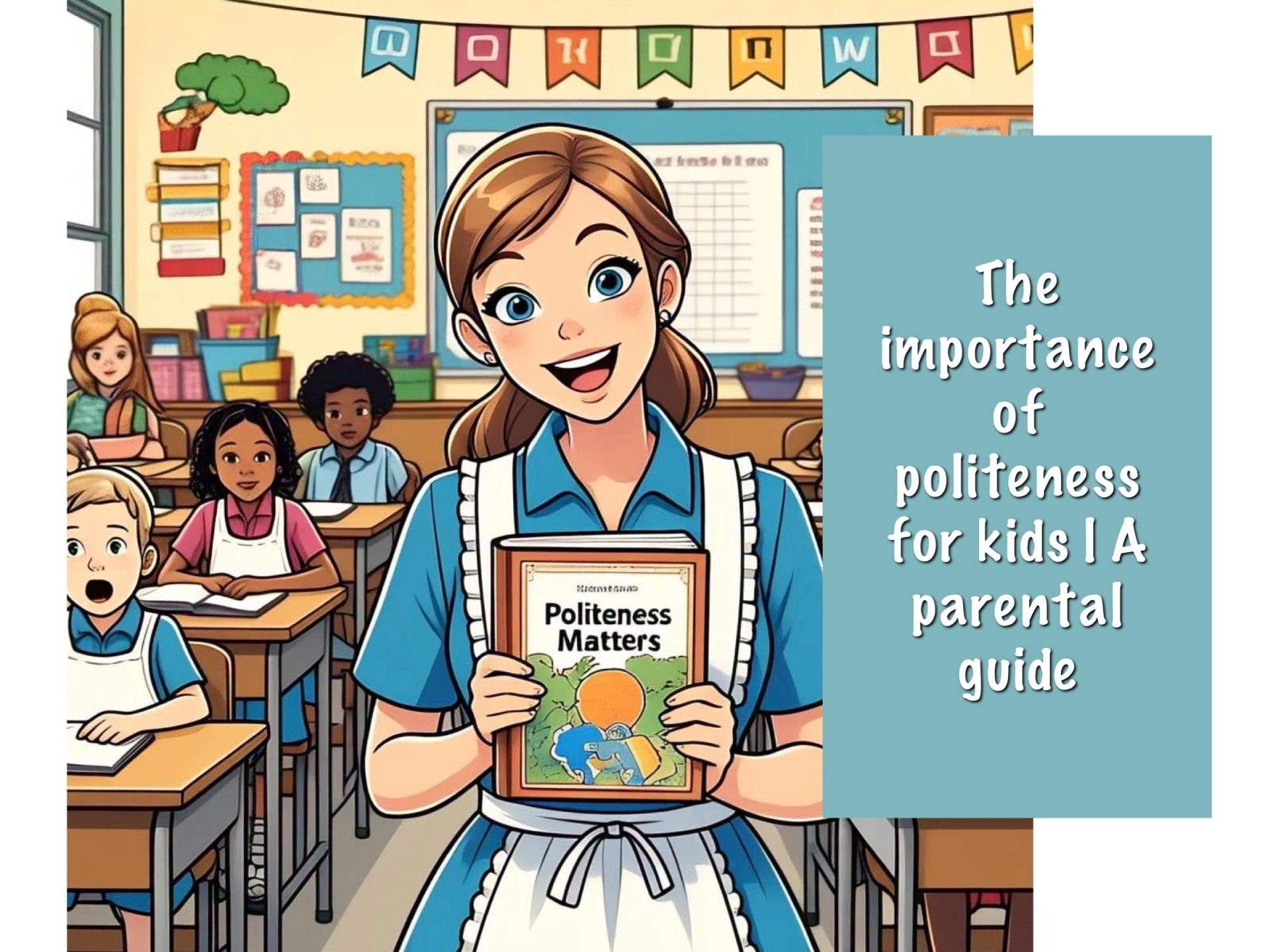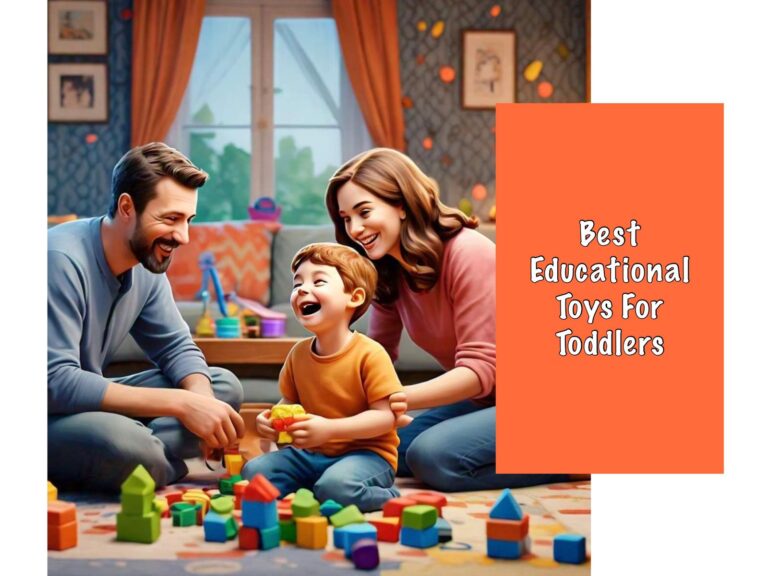The Importance of Politeness for Kids | Teaching Good Manners for a Better Future
Politeness is a fundamental value that helps children build positive relationships, communicate effectively, and grow into kind and respectful individuals. Teaching kids the importance of politeness from an early age can shape their character, improve their social skills, and prepare them for success in life. In this article, we’ll explore why politeness matters, how it benefits children, and practical ways to instill good manners in them.

What Is Politeness?
Politeness is showing respect and kindness to others through words, actions, and behavior. It includes simple gestures like saying “please” and “thank you,” listening when someone speaks, and treating others with courtesy.
Being polite doesn’t just mean following rules, it reflects a child’s attitude and consideration for others. Politeness helps children interact positively at home, school, and in society.
Why Is Politeness Important for Kids?
1. Builds Strong Social Skills
Polite children are more likely to make friends, communicate effectively, and be respected by peers. Saying “excuse me” and “thank you” helps them develop social etiquette, making interactions smoother.
2. Encourages Respect for Others
Respect is the foundation of politeness. Teaching kids to be respectful towards elders, teachers, and friends fosters mutual understanding and harmony in relationships.
3. Boosts Self-Confidence
A well-mannered child feels more confident in social situations. When children practice politeness, they gain a sense of belonging and are more comfortable expressing themselves.
4. Improves Emotional Intelligence
Being polite teaches kids empathy and consideration. When children learn to say “sorry” and “please,” they understand the feelings of others and become more compassionate individuals.
5. Helps in Academic and Career Success
Good manners are crucial in professional settings. Children who learn to be polite at an early age develop strong communication skills that benefit them in school and future careers.

How to Teach Politeness to Kids?
1. Lead by Example
Children learn best by watching adults. If parents, teachers, and caregivers practice politeness, kids will naturally follow their lead.
2. Use Positive Reinforcement
Praise children when they use polite words. Saying, “That was very kind of you to say thank you,” reinforces good behavior.
3. Teach Magic Words
Introduce basic polite phrases like:
- “Please” – When asking for something.
- “Thank you” – To express gratitude.
- “Excuse me” – When interrupting or passing by.
- “Sorry” – When making a mistake.
4. Encourage Sharing and Kindness
Teach kids to share toys, take turns, and help others. These actions promote cooperation and strengthen friendships.
5. Role-Playing Good Manners
Create fun scenarios where children practice politeness, such as greeting guests, ordering food politely, or resolving conflicts respectfully.
6. Set Clear Expectations
Explain why politeness matters. For example, “When we say thank you, we show gratitude, and people feel happy.”
7. Teach Table Manners
Basic etiquette like chewing with the mouth closed, using a napkin, and saying “May I?” at the dining table instills discipline and respect.
8. Correct Impolite Behavior Gently
If a child forgets to say “please,” remind them calmly instead of scolding. Positive correction encourages learning.
Examples of Politeness in Everyday Life
At Home
- Greeting family members in the morning.
- Saying “please” when asking for help.
- Thanking parents for meals and gifts.
At School
- Listening attentively when teachers speak.
- Respecting classmates’ opinions.
- Helping friends in need.
In Public Places
- Holding the door open for someone.
- Saying “excuse me” when passing through a crowd.
- Offering a seat to the elderly.
The Long-Term Benefits of Politeness
1. Creates a Positive Personality
Children who practice politeness grow into considerate and well-liked individuals.
2. Strengthens Family Bonds
Respectful kids build strong relationships with parents, siblings, and relatives.
3. Enhances Leadership Skills
Politeness makes children more approachable and helps them become effective leaders in the future.
4. Promotes a Peaceful Society
A world where people treat each other with kindness and respect leads to a harmonious community.
FAQs
1. At what age should children learn politeness?
Children can start learning basic polite words like “please” and “thank you” as early as two years old.
2. How do I teach my child to be polite when they are stubborn?
Use patience, positive reinforcement, and lead by example. Encourage politeness through fun activities like role-playing.
3. Why do some children struggle with politeness?
Some kids may not fully understand the importance of politeness or may need consistent reminders and encouragement.
4. Can politeness improve my child’s future success?
Yes! Polite children develop better communication skills, make lasting friendships, and excel in school and careers.
5. How can teachers encourage politeness in the classroom?
Teachers can set rules for respectful communication, reward good manners, and create role-playing exercises to teach polite behavior.
By focusing on the importance of politeness, we can raise children who contribute to a more respectful and kind world. Start today, and watch how small acts of politeness create a big impact!
Conclusion
Politeness is more than just saying “please” and “thank you”—it shapes a child’s character, strengthens relationships, and paves the way for future success. By teaching children the value of respect, kindness, and good manners, we help them grow into responsible and compassionate individuals.
Start today, be a role model, reinforce good behavior, and make politeness a natural part of everyday life. A polite child today becomes a kind and respectful adult tomorrow!. Visit us more often, we aim to be the best Online learning for kids website.








